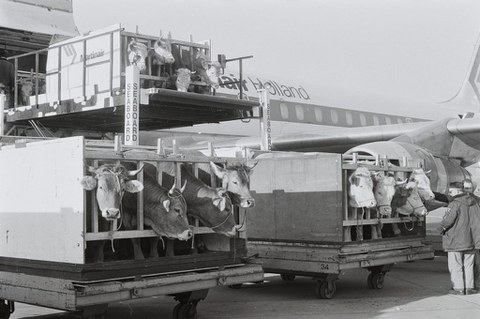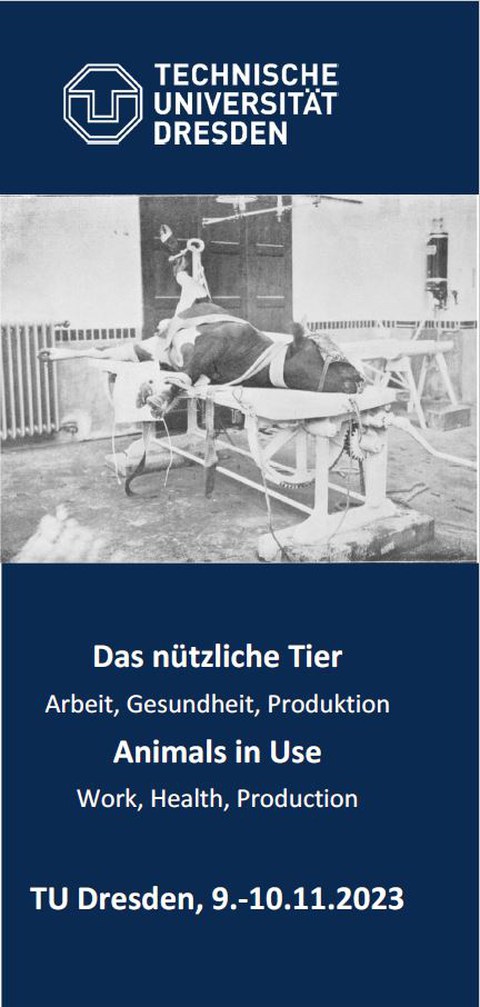Farm animals in business, technology, transportation and the environment
The study of animals - whether in the wild, in the home, in the zoo, in the stable or in the laboratory - has been booming again in interdisciplinary cultural studies research in recent years. Sometimes this is combined with a decidedly animal rights-philosophically charged perspective. In this context, the establishment of human-animal studies or critical animal studies is worth remembering. Animals are now also increasingly being addressed in the history of politics, technology, the environment and mobility. The Chair of History of Technology and Economy also researches, discusses, writes and teaches about the history of farm animals. We are particularly interested in the interfaces between animal husbandry, "animal production" and the afterlife of farm animals with the economy, technology, transportation, the environment and medicine.
Research
Gisela Hürlimann / Uwe Fraunholz: Animalische Stoffflüsse. Reflections on the technical and economic history of the livestock utilization complex in high modernity. Planned research project (submission 2023)
Events
- Workshop: The useful animal. Arbeit, Gesundheit, Produktion / Animals in Use. Work, Health, Production. TU Dresden, 9/10.11.2023
More and more people are vehemently calling for an end to animal husbandry as we know it. The retrospective view of factory farming practices in technocratic high modernity, i.e. the historical reflection on livestock and animal use, seems suitable for further elaborating the need for a caesura.
The conference's first focus is on human-animal labor and mobility. The ploughing cow in particular symbolizes the historical polyfunctionality of some farm animals in that it is also important as a supplier of meat and milk. This addresses animal breeding and husbandry - in stables and on pasture - animal feeding and animal health of cattle, pigs and chickens, which are further focal points of the conference.
Colonial contexts will also be discussed, as well as another aspect of human-animal relations related to slaughter, namely the striving for complete "utilization" of the farm animal, which is significant in terms of economic and technological history and turns it into a "raw material".
Publications
Auf den Spuren des Nutztiers / Sur les traces des animaux de rente. Traverse. Zeitschrift für Geschichte - Revue d'histoire, Volume 2021/2 (edited by Gisela Hürlimann, together with Alexandre Elsig, Sarah-Maria Schober, Isabelle Schürch).
Teaching
- WS 21/22 (TUD): Slaughterhouses. Supply operation, non-place, scandal (G. Hürlimann, advanced seminar)
- Summer semester 21 (TUD): Topic "biotic motor" as part of the lecture: "Die beschleunigte Gesellschaft.Verkehrsentwicklung, Mobilität und Transportinnovationen im 19./20. Jahrhundert" (G. Hürlimann)
- Summer semester 20 (KIT): The useful animal. On the cultural and knowledge history of the farm animal and its people (G. Hürlimann, Oberseminar)
- WS 19/20 (KIT): Beyond milk and steak. Cattle-human-machine interactions between field, slaughterhouse, laboratory and factory (G. Hürlimann, seminar)


